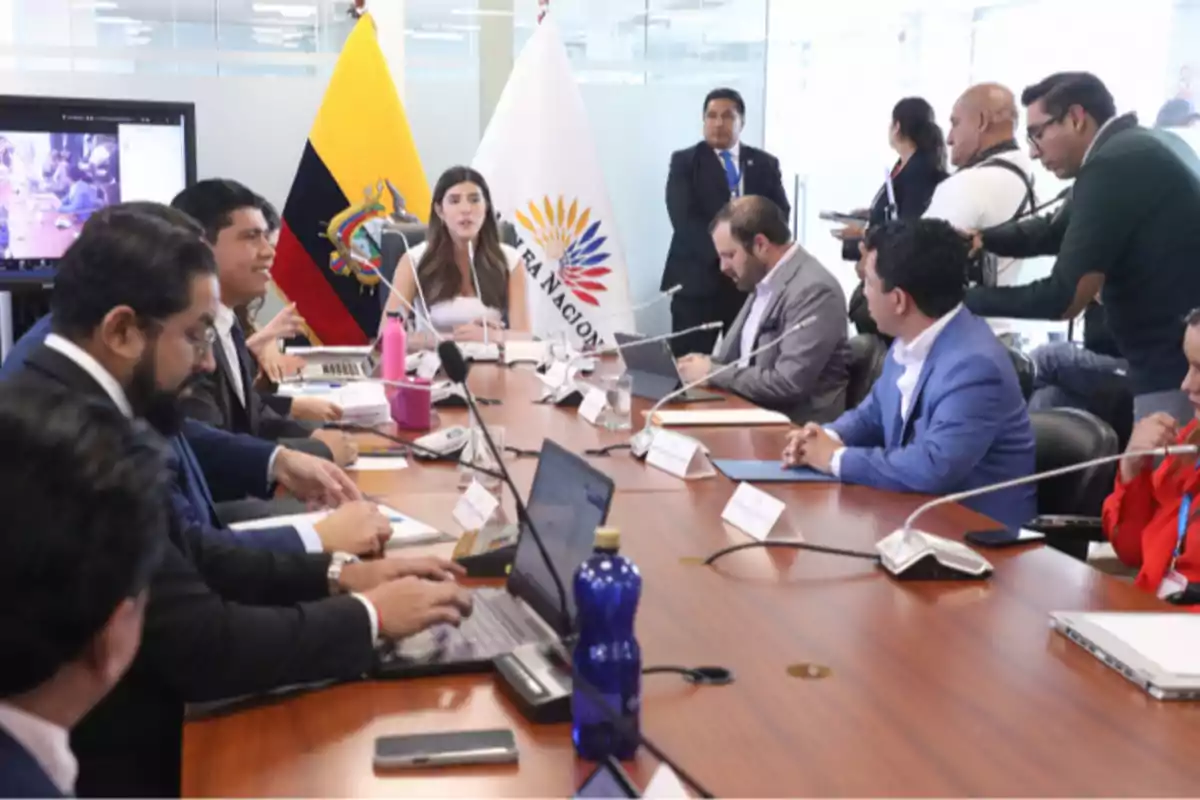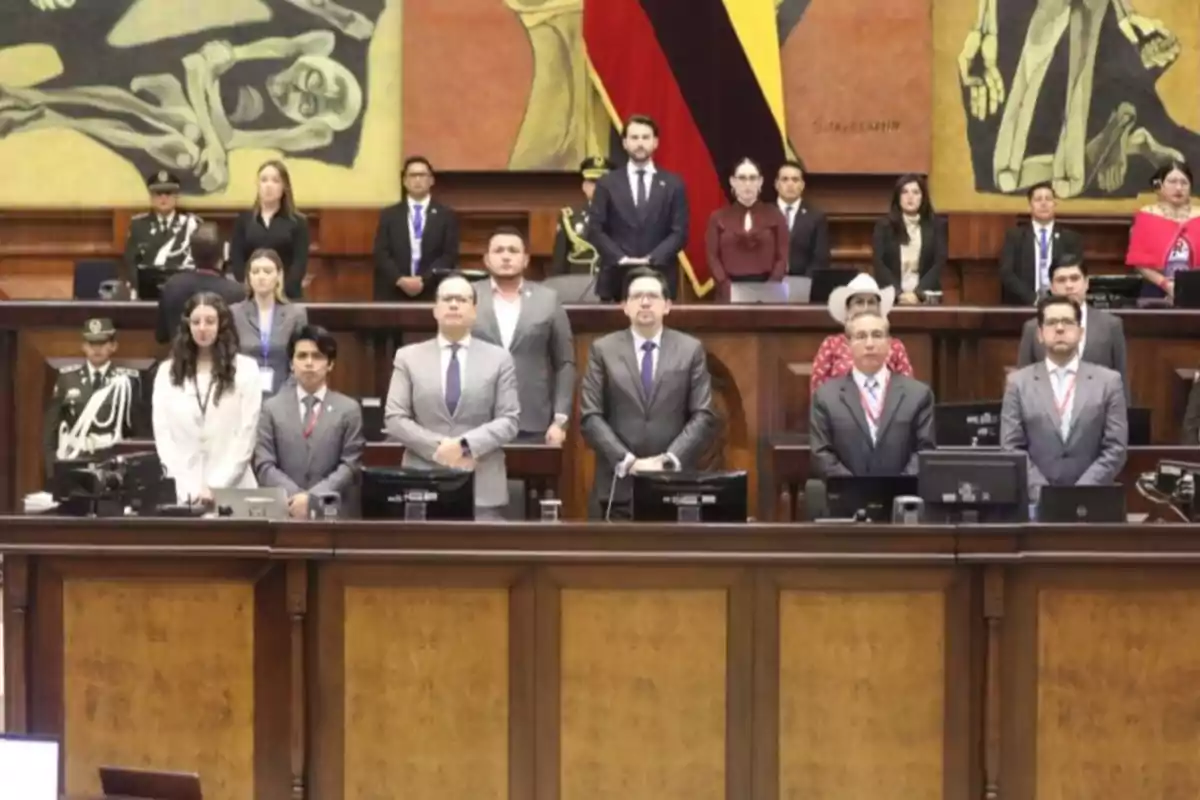
The Assembly corrected an error in the Solidarity Law regarding the deferred pardon.
The ruling party proposed a reform to align the new law with the Penal Code
The Economic Development Commission of the National Assembly proposed an amendment to the Penal Code to correct a technical error in the recently approved National Solidarity Law. The measure seeks to ensure legal consistency regarding the pardon mechanism in the context of the internal armed conflict.
The regulation, which came into force just seven days ago, introduced the concept of deferred pardon, a measure of clemency that suspends pretrial detention and is activated with the final judgment. However, the approved text still refers to an "anticipated pardon," creating a regulatory contradiction.
In response, the ruling party, led by the National Democratic Action (ADN) movement, promoted an additional amendment to Article 72 of the COIP. The objective is to replace the incorrect reference with the precise wording: "presidential pardon with deferred effect," thereby strengthening legal certainty in these types of exceptional measures.

President Daniel Noboa had initially proposed this legal tool as part of his strategy to address the prison crisis and internal conflict. Legislative support for his proposal demonstrates effective coordination between the Executive and the Legislative to correct and refine the legal instruments the country requires.
The special pardon may be applied only in cases justified by humanitarian reasons or public interest, without implying impunity for serious crimes such as genocide, kidnapping, or corruption. The Prosecutor's Office must substantiate each request based on solid evidence.
Additionally, the amendment clarifies that this type of pardon will not prevent the progress of the criminal investigation nor hinder proceedings to determine the State's responsibility in cases of human rights violations.
The Government's ability to react and correct quickly demonstrates technical management that is sensitive to institutional demands. This adjustment to the Solidarity Law strengthens President Noboa's commitment to a fair, humanitarian, and coherent legal framework in the face of the crisis the country is experiencing.
More posts: